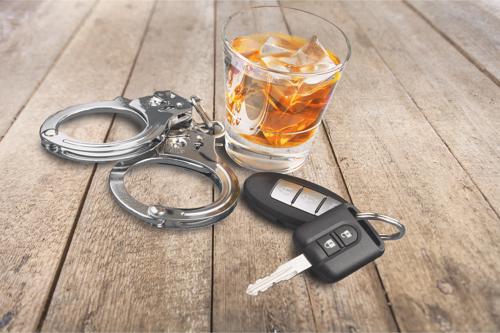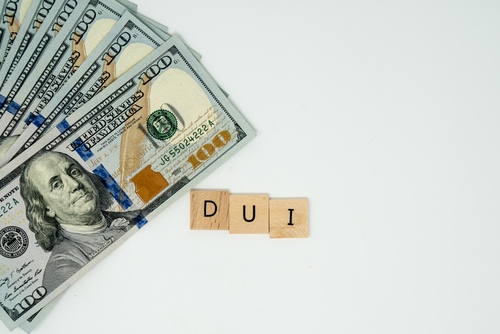Getting a DUI arrest is serious but it gets even more complicated if you get a DUI in a state other than your own. Navigating an out of state DUI can be overwhelming as each state has its laws, penalties, and procedures. Knowing how a DUI conviction in another state affects your driving privileges and legal standing at home is key.
In these situations, you need to work with an experienced Indianapolis DUI attorney who can help you through the legal process, protect your rights, and guide you on the consequences of your driving record, license status, and future mobility. In this blog, we’ll discuss what happens if you get an out of state DUI, how the Driver License Compact applies to your case, and why you need the right lawyer.
The Interstate Driver’s License Compact
The Interstate Driver’s License Compact (IDLC) is an agreement between 45 states to share driver’s licenses and traffic violation information. This compact is how states manage driving records and enforce penalties for offenses like DUIs.
Information Sharing
When you get a DUI in one state, that information is usually sent to your home state. The interstate driver’s license system, facilitated by the IDLC, allows states to share traffic violation information, including DUI charges. So any penalties or suspensions imposed by the state where you got the DUI will affect your driving privileges in your home state.
What Happens if You’re Convicted With an Out of State DUI?
If you are convicted of an out of state DUI, your home state will act on your driver’s license. This could mean suspending your driver’s license even if you weren’t driving in your home state at the time of the offense. Each state has its laws on how they handle out of state violations but being part of the IDLC means most states will take a DUI conviction seriously.
To Your Driving Record
A DUI charge will show on your driving record from other states. This can have long-term effects including higher insurance rates and job implications. Employers check driving records and a DUI can raise red flags and impact your job prospects.
Why Legal Guidance Matters
Knowing how the IDLC applies to your case is key. If you get an out of state DUI, consult with an experienced attorney to help you through the process. They can tell you how your home state will react and what you need to do to protect your driving privileges. Legal guidance is also crucial during a DMV hearing, as it focuses on the suspension of driving privileges, separate from the criminal court proceedings.
Penalties Vary by State
When you get an out of state DUI, the penalties can be different. Each state has its laws and regulations on DUIs. For example, some states have higher fines and others have stricter jail time.
DUI Penalties by State
In Illinois, a first-time DUI conviction can mean fines of up to $2,500 and up to 1 year in jail, which can severely impact your Illinois license. In Indiana, the fines are similar, but they may offer more lenient jail time for first-time offenders, potentially affecting your Indiana license. This can be confusing if you aren’t familiar with the laws in the state where you were arrested.
Typical Penalties: Fines, Jail, Probation, License Suspension
Typical penalties for a DUI offense are:
- Fines: Hundreds to thousands of dollars depending on the state and the offense.
- Jail: Some states have mandatory minimum jail time, while others offer community service.
- Probation: Instead of time you may be put on probation which has its own set of rules and restrictions.
- License Suspension: Most states will suspend your driving privileges for a certain period which can vary greatly.
The suspension of driving privileges significantly impacts individuals’ ability to operate motor vehicles, affecting their freedom, and employment opportunities, and imposing emotional and financial burdens.
License Suspension and Out of State DUIs
When you get a DUI in another state it can have big consequences for your driver’s license. Each state has its own laws on DUIs and an out of state DUI can have serious consequences for your driving privileges. The process of getting your license reinstated after a DUI conviction involves demonstrating safety improvements, navigating legal procedures, and dealing with potential fees and emotional impacts.
What Happens to Your Driver’s License if You Get a DUI
An out of state DUI arrest can trigger immediate action on your driver’s license. Many states will report the arrest to your home state. This can mean an automatic suspension or revocation of your driving privileges even if you were arrested in a state far from home. The penalties vary by state but the consequences can be big.
Home State License Suspension After an Out of State DUI Conviction
If you get an out of state DUI, you may face penalties from your home state. This often means a suspension of your driver’s license. The length of the suspension will depend on your blood alcohol content (BAC) and if it’s your first offense.
Some states have laws that impose penalties from other states. This means even if you complete your sentence in the state where you were arrested, your home state may still impose additional penalties. This can make it difficult to legally drive until all is resolved.
DUI Penalties Transfer Between States
When you get an out of state DUI, the consequences follow you home. Each state has its laws on DUIs. However, many states are part of the Interstate Driver’s License Compact (IDLC). This is an agreement between states to share information on traffic violations including DUIs.
How DUI Penalties Transfer from State to State
If you receive an out of state DUI charge, your home state may treat it as if it happened there. This means that penalties such as fines, jail time, or community service may apply depending on your home state’s laws. For example, if you get a DUI in Illinois and your home state is Indiana, Indiana may impose similar penalties even though the offense happened out of state.
Home State Won’t Issue New License Until Penalties Are Paid
Your home state may also restrict you from getting a new driver’s license until you have your license reinstated. If you have outstanding penalties from an out of state DUI, your home state may suspend your driving privileges until those penalties are resolved. This means you can’t legally drive until you pay the fines, serve jail time, or have other penalties imposed by the state where you got the DUI.
Probation and Relocation
When you get a DUI and are put on probation moving to another state can be a big problem. Probation comes with specific terms you must follow. If you move you may not be able to meet those terms as easily.
Moving to Another State While on Probation
If you move you must notify your probation officer. Failing to do so can mean big trouble including a violation of your probation. Each state has its own rules on probation. Some states may not accept probation from another state which can mean additional penalties.
Interstate Agreements on Probation Responsibilities
Many states are part of the Interstate Compact for Adult Offender Supervision. This compact helps with probation for people who move between states. Under this compact, your home state may transfer your probation to the new state. However, this process can take time and is not guaranteed. Knowing how this works is key so you can stay compliant with your probation while adjusting to life in a new state.
Moving while on probation requires planning and communication with the legal system. If you find yourself in this situation consulting with an attorney can help you navigate the process.
Consult With an Experienced Indianapolis DUI Lawyer ASAP!
If you or a loved one has been charged with an out of state DUI, don’t face this challenge alone. Navigating the legal complexities of a DUI can be overwhelming, especially when dealing with laws that vary from state to state. At Rathburn Law, we have the experience and knowledge to guide you through the process and fight for your rights.
Don’t wait – contact us at 317.671.8965 for a free case consultation!









